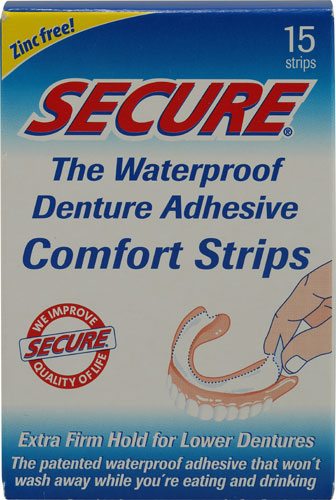[vc_row][vc_column][vc_column_text]What you eat impacts your health in endless ways, including physical and mental. Nutritious foods provide you with the fuel that energizes your days and the nutrients that repair and build bodily tissues and help you recover from daily activity. So, it’s no surprise that nutrition and oral health are intertwined.
Certain nutrients support the building and maintenance of healthy
teeth and gums, and the health of your mouth impacts nutrient absorption, making the relationship between nutrition and oral health a bidirectional one. Your oral health affects your overall health more than you likely realize.
Learn about the research behind nutrition’s impact on oral health, what you can eat to promote healthy mouth tissues, and what foods you should reduce or avoid.

Nutrition and oral health: What the research says
Research clearly shows that the foods you eat impact your oral health. Sugary foods, for instance, can cause dental caries (cavities) and affect gum health. Other
adverse effects of poor diet on oral health include dry mouth, periodontal disease and loss of teeth -- issues no one wants.
Studies have shown a higher risk of losing teeth and poor oral health from eating processed meats and low-nutrient quality foods. While it might sound extreme, poor oral health as you age can put you at greater risk of developing chronic conditions, such as disability, cardiovascular disease and increased mortality risk.
Lower intakes of fruits and vegetables and the nutrients vitamins C and E are specifically
linked to tooth loss, so eating plenty of produce will help. Losing teeth can also lead to less healthy food choices, creating a negative loop. People with at least 25 teeth consistently eat more nutrient-dense foods, including harder-to-chew foods like raw vegetables, fruit and leaner cuts of meat.
If you don’t have healthy teeth,
studies show you’re more at risk for nutritional deficiencies and stick to eating softer, higher-calorie foods that also tend to contain more saturated fat and unhealthy cholesterol.
Nutrients & food for healthy teeth and gums
Many nutrients play a role in oral health, including those that build tooth enamel, healthy gums and mouth tissue, reduce harmful cavity bad breath causing bacteria, balance acids and keep your teeth strong. Try including more of the following in your diet:
Calcium
Calcium is an essential mineral for forming and maintaining bones and teeth. Consuming foods with calcium leads to the mineral being absorbed into your bloodstream so it can be used in building and preserving your teeth.
Consuming milk and yogurt is shown to reduce tooth erosion, partly because calcium
acts like a buffer to high pH foods that would otherwise erode tooth enamel.
Top calcium-containing foods include:
- Firm tofu
- Milk, yogurt and cheese
- Leafy greens
- Beans
- Trout, salmon and clams
- Acorn squash
Zinc
Zinc is another mineral that helps with healing and tissue repair. If you experience canker sores, you’re more likely to be
deficient in zinc, so consuming more foods with zinc could improve this painful condition.
Top zinc-containing foods include:
Probiotics
Probiotics are well known for their role in maintaining a healthy gut, skin biome and immune system, but they are
also vital for oral health. Good bacteria help prevent harmful bacteria from causing
oral diseases such as caries and periodontitis, which are two of the most common bacterial infections in humans.
Some of the most effective strains you can support with your diet include
S. salivarus, a bacterial strain present soon after birth in your mouth and gut, thought to help control inflammation and immune response and prevent tooth decay. Other significant strains include
L. reuteri and
L. paracasei, which can also help prevent tooth decay.
To support probiotic growth and a
healthy oral biome, consume foods called pre-biotics that feed your naturally occurring good bacteria while also supplying more naturally fermented probiotic foods.
Probiotic and prebiotic foods to eat include:
Antioxidants
Foods containing antioxidant nutrients like vitamins A and C are linked to better gum health. Gum disease, otherwise known as periodontal disease, begins with inflammation of the gums, called gingivitis.
Antioxidants in your diet help reduce harmful inflammation in the body, and vitamin C is a powerful healing nutrient responsible for repairing tissues such as your gums.
Antioxidant-containing foods include:
- Citrus
- Leafy greens
- Whole grains
- Carrots, sweet potatoes and squash
- Tomatoes
Vitamin D
Vitamin D-containing foods are excellent for oral health because they help your body use and regulate calcium and phosphate, which are both crucial for oral health. Lower amounts of vitamin D foods in the diet are
linked to increased risk for cavities.
Vitamin D-rich foods include:
Foods to avoid for good oral health
Research shows poor diet quality and higher intake of saturated fat are linked to the progression of chronic gum disease and tooth loss. Other dietary factors that contribute to poor oral health include eating sugary, processed, and fried foods.
Foods that can trigger canker sores include hard, acidic and salty foods and alcoholic and carbonated beverages. Sugary and carbonated drinks also
contribute to dental decay, softening of the teeth, and cavities. The foods that are best limited for good oral health include:
- Processed meats like bacon, sausage and salami
- Hard candy
- Sugary foods
- Carbonated and sugary beverages
- White flour products and baked goods
What else you can do
Nutrition is essential for health, including your gums, teeth and other oral tissues. A diet rich in nutrients, including seafood, lean meats, dairy, beans, tofu, leafy greens and whole grains, will help keep your teeth strong and bright.
Of course, you’ll still need to practice
good oral hygiene, such as brushing and flossing daily, staying hydrated and visiting your dentist regularly. If you have any concerns about your teeth, speak to your dentist.[/vc_column_text][/vc_column][/vc_row][vc_row][vc_column][vc_text_separator title="Featured Products" border_width="2"][vc_row_inner][vc_column_inner width="2/12"][/vc_column_inner][vc_column_inner width="3/12"][vc_single_image image="162738" img_size="full" onclick="custom_link" img_link_target="_blank" link="htthttps://www.vitacost.com/codeage-teeth-gums-vitamins-collagen-and-oral-probiotic-blend"][/vc_column_inner][vc_column_inner width="2/12"][/vc_column_inner][vc_column_inner width="3/12"][vc_single_image image="162739" img_size="full" onclick="custom_link" img_link_target="_blank" link="https://www.vitacost.com/codeage-gut-healthformula-zinc-l-glutamine-prebioitcs-probiotics-supplement"][/vc_column_inner][vc_column_inner width="2/12"][/vc_column_inner][/vc_row_inner][/vc_column][/vc_row]




